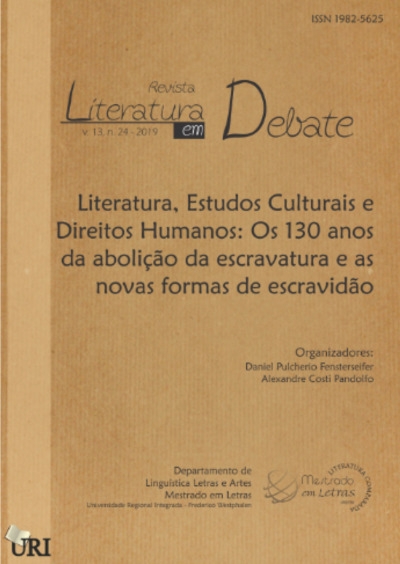Animate Doll, Tropical Fetish: Structures of Race and Property in the Artisanal Folklore of Postcolonial Brazil
Palavras-chave:
escravidão, raça, liberalismo, memória, artesanato gaúchoResumo
This article examines certain aesthetic dynamics through which the memory of transatlantic slavery finds a social incarnation in the realm of cultural production, and specifically in the traditional and popular arts. I take as an ethnographic case study the artisanal namoradeira doll, a folk genre of handcrafts that depict images of black women in a state of ambiguous agency. I consider how these figurines’ gendered representations of blackness stage a visual and literary relationship of affectable embodiment that allegorizes those early modern ontologies of property and personhood that licensed and administered colonial subjugation. Synthesizing a number of genealogies of the commodity form that turn on the historical and juridical figure of the slave, I argue that the dolls’ overdetermined figurations of racialized subjectivity do not simply affirm liberal conceptions of individuation and freedom, but rather enact a poetics that registers the internal contradictions that besiege this humanism.Downloads
Publicado
Edição
Seção
Licença

O trabalho Revista Literatura em Debate de Revista Literatura em Debate foi licenciado com uma Licença Creative Commons - Atribuição 3.0 Não Adaptada.
A submissão de artigos, resenhas e trabalhos de escrita criativa significa que o autor(es) está(ão) cedendo gratuitamente à revista direitos autorais para publicação dos textos e concordando com as normas de submissão apresentadas pelo periódico.
Em caso de republicação, solicita-se apenas referendar o ano e volume de nossa revista onde ocorreu a publicação inicial.

